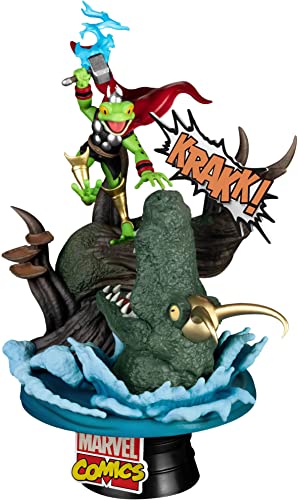I sat down and felt the need to protect our hobby, to think about why we do what we do. I've explained this to my family a million times, but who has actually tried to understand why we collect like we do? I hope maybe this essay will help one of you explain your hobby to your wife, friends, parents, whatever. I've put a lot into this, and I hope that somebody will have an easier time at home because of it. Use it as you like. It's long, but sometimes things need to be long to be right. Here's something that might help you.
Raising Peter Pan--The Hope at the Heart of Collecting
"People have incredibly distorted understandings of what it means to "Grow up." They perceive maturity as a relentless need to be serious and self-indulgent, obsessed with wealth, power, and pleasure. But do those things matter? What do we put in front of everything else? Can we learn to let go of the our problems and think of simpler joys and purer things? Or are we so tied to the trappings of the world that we can't enjoy our lives while we still have them? Is collecting a material obsession, or does it allow us an escape, a chance to see the world through eyes that are cleaner, purer, and more full of hope?
People have often accused me of being "sheltered," or have warned me about what trauma will happen when I go into the "real world." But do I not live in it already? And why can't we take some of our optimism and innocence with us? Why can't we learn to take the simplicity of childhood into our everyday lives? Isn't that what our hobbies do? For me, it makes me a little kinder, a little happier, and a lot more compassionate towards others. Now, does that mean we never grow up? No, for as Tolkien wrote:
'Children are meant to grow up, and not to become Peter Pans. Not to lose innocence and wonder, but to proceed on the appointed journey: that journey upon which it is certainly not better to travel hopefully than to arrive, though we must travel hopefully if we are to arrive.'
Thinking about "make-believe" people makes me want to be a better person--my morals are higher, my resolve is stronger, and my understanding is deeper. Fantasy heroes--Aragorn, Frodo, Luke Skywalker, Superman--give us examples. They show us a better way to live, a nobler way to persevere. My most beloved character, Faramir, is an example of compassion, a model of avoiding temptation and choosing a better path. Fantasy can make people better. Growing up does not mean abandoning fantasy--it means emulating it. When we can see the world with childlike eyes yet make mature decisions within it, we make it a better place, and we become better people. Who is happier, a child full of optimism and excitement, or an old man embittered by a life of meaningless pursuits, which only leave him with a fat bank account and nobody to share it with?
W. B. Yeats wrote:
The Realists
Hope that you may understand!
What can books of men that wive
In a dragon-guarded land,
Paintings of the dolphin-drawn
Sea-nymphs in their pearly wagons
Do, but awake a hope to live
That had gone
With the dragons?
(Responsibilies, 1914)
I think that at the heart of all collectors is a love for fantasy, not just cool action movies and nifty toys, but the wish that such things were real, that our own world could have its own "happy endings." Collecting our figures, filling our homes with memorabilia, etc., simply reflect that hope that such things could happen--that we could find adventure, excitement, and a happy ending. Is the world so cold that it can't accept that any more? In collecting our "trinkets," we show support for a better world, a more epic future, and a happier life. Before we condemn collectors, let us remember the real value of make-believe, the fantasy which makes collectors who they are. Because ultimately, our habits bring a little joy into our lives, and a hope for a better one to come. I think in our hearts, all we want is a better world, a place where we can find ourselves in a world where greed, violence, and lust are celebrated. Fantasy is a release, and a place where we can remember what really matters. As Tolkien wrote, our play and collecting shows a hope for something far greater.
'The consolation of fairy-stories, the joy of the happy ending: or more correctly of the good catastrophe, the sudden joyous “turn” (for there is no true end to any fairy-tale): this joy, which is one of the things which fairy-stories can produce supremely well, is not essentially “escapist,” nor “fugitive.” In its fairy-tale . . . setting, it is a sudden and miraculous grace: never to be counted on to recur. It does not deny the existence of dyscatastrophe, of sorrow and failure: the possibility of these is necessary to the joy of deliverance; it denies (in the face of much evidence, if you will) universal final defeat . . . giving a fleeting glimpse of Joy, Joy beyond the walls of the world, poignant as grief.'
J. R. R. Tolkien, On Fairy Stories"
I will probably be buying toys until the day I kick it, and she is surprisingly OK with this.








 I got one myself
I got one myself
















 Short Round wasn't even in KOCS!
Short Round wasn't even in KOCS! 